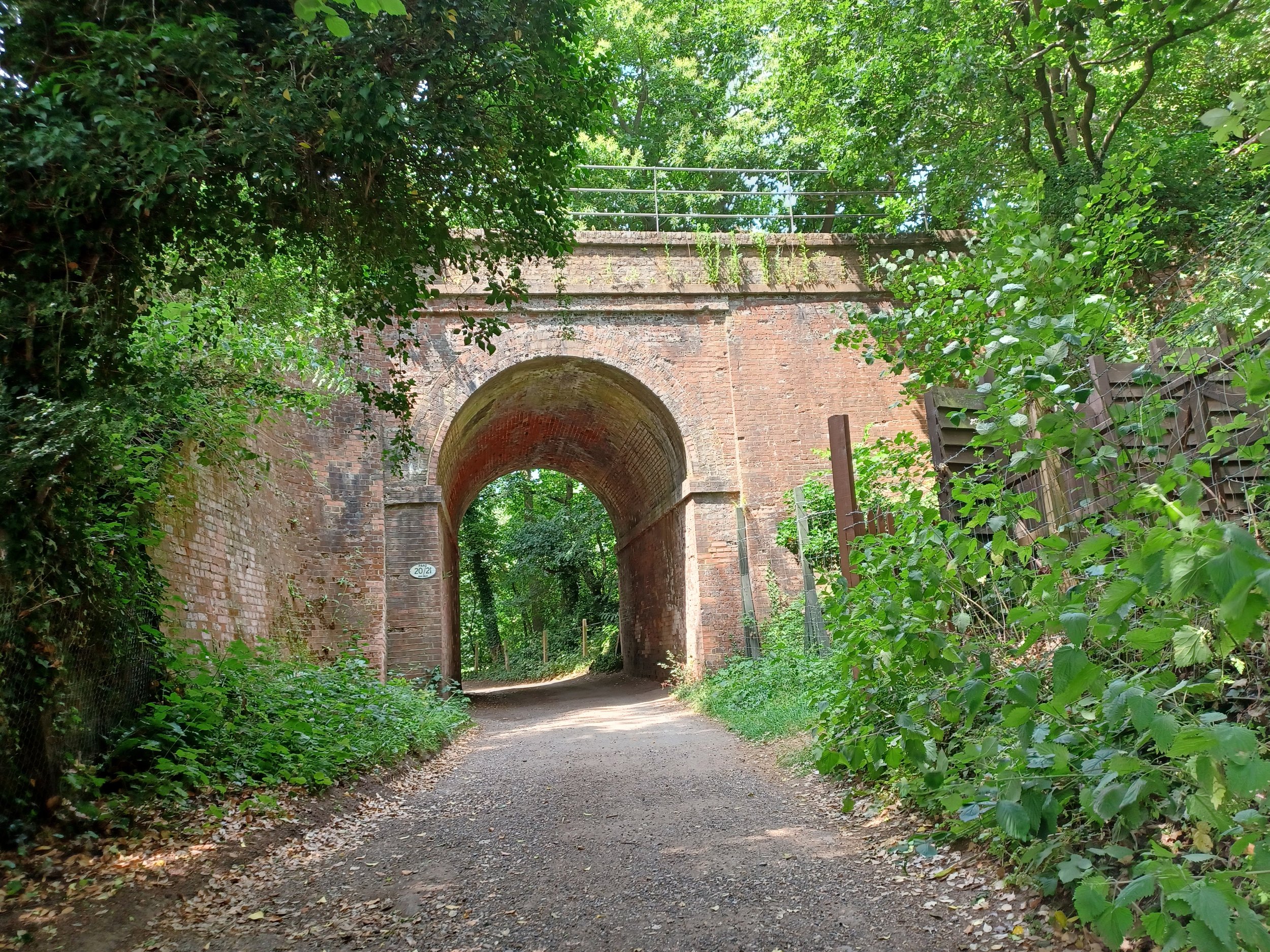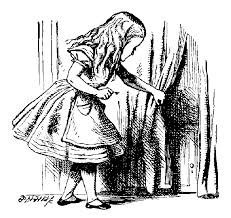
Inner Journey
Virtual Pilgrimage
Introduction
This page describes a “virtual pilgrimage”, a pilgrimage for those who want to go on a pilgrimage but can't get out and about for any reason, for example family responsibilities, financial considerations, or impaired mobility. Look at this page for more on virtual pilgrimage.
A couple of years ago, I read the classic travelogue “A Time of Gifts” by Patrick Leigh Fermor. As an 18 year-old in the 1930s, he walked from the Hook of Holland to Constantinople. It is a fascinating account of his journey, being an eclectic mix of the places he passed through, interwoven with his cultural, political and historical asides.
The book’s introduction includes this following striking quotation...
“I struck the board, and cried, "No more;
I will abroad!
What? Shall I ever sigh and pine?
My lines and life are free, free as the road,
Loose as the wind...”
These lines come from a poem called “The Collar”, written by George Herbert, a 17th Century English poet and priest.
“Loose as the wind”!
The poet powerfully expresses his yearning to shake off the “collar” of his currently circumscribed existence, gaining his liberty to explore the wider world instead.
You may have a hankering to make such a journey yourself, but perhaps don't currently have the opportunities necessary for you to do so. Well, George Herbert’s poem is in fact an inner exploration of spiritual freedom, rather than recounting a subsequent physical journey. So, you too are invited to come along on a “Virtual Pilgrimage”, exploring the concept of "The inner journey”!
Follow this virtual journey with me; we will use the “Steps of Pilgrimage” detailed on the Home Page, starting with…
1. Holy Longing
“Examine yourselves”, 2 Corinthians 13.5
Your pilgrim journey begins with new thoughts or experiences that are in some way challenging, or a desire to examine a specific Scripture.
The invitation is to explore what Jesus meant when He said, “The kingdom of God is within you” Luke 17.21, KJV
I was reminded of Lewis Carol’s “Alice's Adventures in Wonderland”, where Alice, having fallen down a rabbit hole, found the golden key to a hidden doorway.
She peers through and can see a vista of bright flowers and cool fountains, contrasting with the dark hallway in which she currently stands. To her distress, to start with at least, she cannot enter as she is too large. Nevertheless, in time, she does find a way.
Hopefully, on our pilgrim way, we too can make a journey inward, towards the “kingdom of God within you”.
To begin with, an autobiographical touch to help explain why I became interested in the concept of virtual pilgrimage.
Almost 10 years ago, just a few weeks short of my 60th birthday, I had a significant stroke. The event was enough to necessitate my retirement as a physiotherapist, and even after my excellent medical and nursing care, together with superb therapeutic rehabilitation, I was left with significantly impaired mobility.
I have heard it said “You may help a lame dog over a stile but he is still a lame dog on the other side.” On the face of it, a rather depressing and potentially defeatist declaration. Thinking about it futher, the saying is true. Even after accepting interventions to get him over the stile, the dog is no further on without further help.
Which made me ask, could the dog aspire to new goals to help him in his onward journey?
Well, I'm thankful to be able to say in my case there were new goals, starting at Frimley Park Hospital in Surrey, followed by residential care at the Bradley Neuro-rehabilitation Unit in Woking, then a whole range of input from a variety of other therapists, including at Fleet Community Hospital where I previously worked. All of this was reinforced by supportive family and friends, including the church family.
However, it has proved an on-going journey.
Quite recently I read “A Gentleman in Moscow”. It is about a Count who, during the Russian revolution, is imprisoned for life in the Hotel Metropolin in central Moscow. This is a potentially daunting prospect, he having previously been a man of means and used to travel. Nevertheless, he philosophically adapts himself to his greatly circumscribed horizons.
At first, he feels able to congratulate himself on this adaptability. However, the Count then meets a young school girl, Nina, who makes him think otherwise. She is similarly confined, but the Count realises that Nina’s own constrained environment is much deeper and richer than his own. This is because “She had gone below. Behind. Around. About.” She had explored widely and spoken to the people she met. Consequently, she inspires the Count to broaden his own horizons by looking more deeply within himself.
The kingdom of God is within you - Luke 17.21, KJV
Which brings me to the verse of Scripture, which I feel inspired to reflect upon more deeply. With help and rehabilitation, I have achieved highly satisfactory mobility for which I'm deeply grateful. However, a vital part of this rehabilitative journey has been a spiritual journey, taking me inwards, where I might otherwise previously have been able to go outwards.
And now the novel and the verse of Scripture coming together have acted as a call to go further and deeper.
In the time “Nina had been in the hotel, the walls had not grown inward, they had grown outward, expanding in scope and intricacy. In her first weeks, the building had grown to encompass the life of two city blocks. In her first months, it had grown to encompass half of Moscow. If she lived in the hotel long enough, it would encompass all of Russia.”
Join me on the Pilgrim Journey below! Behind. Around. About.
2. Pilgrim Journey
“Set your heart on pilgrimage”, Psalm 84.5
During your journey, mediate on the Bible verses you are reading as you review and reflect on your thoughts and experiences.
So, the journey starts with a question: What did Jesus mean when He said “The kingdom of God is within you” - Luke 17.21, KJV? Will my perception of the kingdom of God and a deeper awareness of it bring fresh challenges? Challenges that will disturb my status quo? To explore this, I start the journey by leaving Moscow and heading for Narnia!
In the first of his Narnia Chronicles, The Magician’s Nephew, C.S. Lewis introduces us to Digory and Polly. They are tricked into putting on magic rings that transport them from London into another dimension, emerging from a pool into the Wood Between the Worlds. Here they find other pools which they realise could take them to other worlds, unknown and very different to the one they had just left.
But to jump into a pool would require a ‘leap of faith’. Digory and Polly resolve to give it a go, so “they stood with beating hearts and rather scared faces on the edge of the unknown pool with their yellow rings on and held hands and once more said ‘One—Two—Three—Go!’”
(And if you don't already know what subsequently happened to Polly and Diggory, I guess you'll have to read the book!)
Am I the sort of person to jump into a pool? Or am I more likely to sit at the computer, contemplatively writing about it?
I once heard of the distinction between two roads on which we may make our spiritual journeys. One is the Damascus Road, the road on which St Paul was met by Jesus and experienced a dramatic and sudden conversion in Acts chapter 9. The other is the road to Emmaus, in which two disciples came to a growing realisation that they had met Jesus in Luke chapter 24.
I think that, temperamentally, I have always been inclined to travel on the Emmaus road, with things unfolding more slowly, including on the “journey within”.
And yet, and yet. Might I be called to something a little more adventurous?
C.S. Lewis captured something of this in the last book of his Chronicles of Narnia, The Last Battle. The country of Narnia was in terminal decline and the way out of it was to walk through a strange free-standing stable door. Those that encountered the door were understandably mystified, as they peeped through the planks, trying to understand it.
One of the characters, Tirian, observes the following:
“It seems, then,” said Tirian, smiling himself, “that the stable seen from within and the stable seen from without are two different places.”
“Yes,” said the Lord Digory. “Its inside is bigger than its outside.”
“Yes,” said Queen Lucy. “In our world too, a stable once had something inside it that was bigger than our whole world.”
The challenge is to step through that stable door.
3. Prayerful Arrival
“Be transformed by the renewing of your mind”, Romans 12.2
Your reflections during the journey become formulated into definite thoughts and prayers, forming new ideas or modifying existing concepts.
If I step through the stable door, what will I find? I will find Jesus, come as a baby, surrounded by family and others who are worshipping him.
If I join them in worship, I will find that
The kingdom of God is within you - Luke 17.21, KJV
4. Servant Response
”Love one another”, John 13.34
Prompted by what you have learnt on your journey, commit to appropriate areas of service in God’s Kingdom.
However, I cannot stay in the stable. Jesus and his family will soon leave, fleeing to Egypt and then returning to Nazareth. The shepherds will return to their flocks. The wise men will return to the East.
My path may be clear, as in the photo, or it may be harder to discern. With the help of friends, the Bible and prayer, I will seek my path and the strength to follow it.
May this be true for all of us. Amen.














